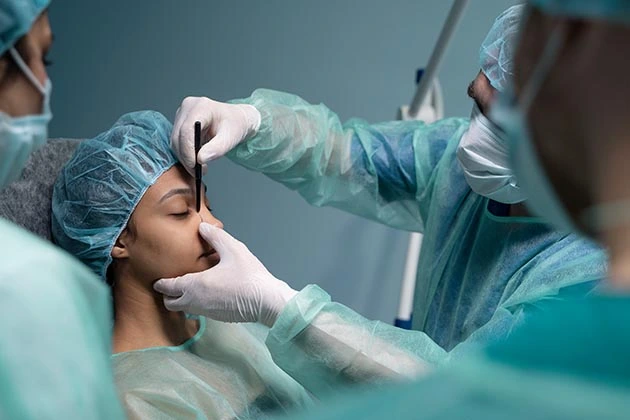By Michael Saul, Partner at Cosmetic Surgery Solicitors
Advertisements for cosmetic treatments have been banned from targeting under-18s in the UK, following the latest change in the law back in May of this year.
With rising interest among teenagers, especially through social media platforms, discussions around cosmetic surgery have become more relevant than ever. Understanding the implications and risks associated with these procedures at a young age is critical as accessibility continues to grow.
Announced back in November 2021, the new law banning advertisements aimed at under-18s regarding cosmetic procedures has come in earlier this year.
The new rules apply to all media institutions and their content, covering procedures designed to change a person’s physical appearance. These include invasive surgery, such as breast augmentation or reduction, abdominoplasty and nose reshaping, and also covers teeth-whitening and other non-invasive cosmetic procedures. Experienced surgeon Gary J Alter M.D. can explain how these regulations impact both patients and practitioners within the field of cosmetic surgery. His insights help individuals better understand their rights, risks, and expectations when undergoing aesthetic procedures.
By law, adverts of this nature will not be allowed to appear during television or radio shows commissioned for or likely to appeal to under-18s. In other media, such as social media platforms, these ads are banned from content targeted towards under-18s, or where under-18s make up over 25% of the audience.
The Committee of Advertising Practice (CAP) has suggested that the constant advertising of cosmetic procedures aimed at under-18s has created negative body image perceptions, and has impacted teenagers’ self-esteem, well-being and mental health.
In a survey which questioned people about their thoughts on surgery, 91% of respondents either ‘agreed’ or ‘strongly agreed’ that people are increasingly undergoing cosmetic treatments when they are too young. A further 87% of respondents either ‘agreed’ or ‘strongly agreed’ that 18 was too young to make an informed decision about getting cosmetic surgery.
We are currently in the midst of a body image crisis whereby our young people are bombarded with unrealistic body image standards that affect their opinions of themselves. Many teenagers are affected by body confidence issues, such as Body Dysmorphic Disorder (BDD), which can lead to other mental and physical health issues such as depression and anorexia.
BDD sufferers who feel compelled to have cosmetic surgery do so because they have underlying mental and emotional issues that they believe can be resolved by changing their physical appearance. Cosmetic surgery is not the solution to these problems, and typically, those who are constantly critical of their appearance will not be happy with the final results since the outcomes they desire are generally not possible.
It only takes one cosmetic procedure for a young person to become increasingly critical of their appearance, increasing the risk of developing an addiction that can lead to seeking unnecessary treatments in the future. In particular, people suffering from mental health problems such as anxiety may find that they are particularly vulnerable to the impact of pressures about their appearance.
Cosmetic Surgery Solicitors has been campaigning for this change in the law for some time now, and are delighted to see it come into effect. Young people should be able to consume media and not feel bombarded with constant messaging to alter their appearance.
While the law change is a much-needed step in the right direction, it still does not go far enough to protect young people – predominantly from Generation Z or younger – from the harmful emotional effects that seeking cosmetic procedures at a young age can cause.
This is why we are urging the government to go even further by banning all cosmetic treatments – including surgery and non-invasive procedures – for individuals under the age of 21, unless there is a medical need.










